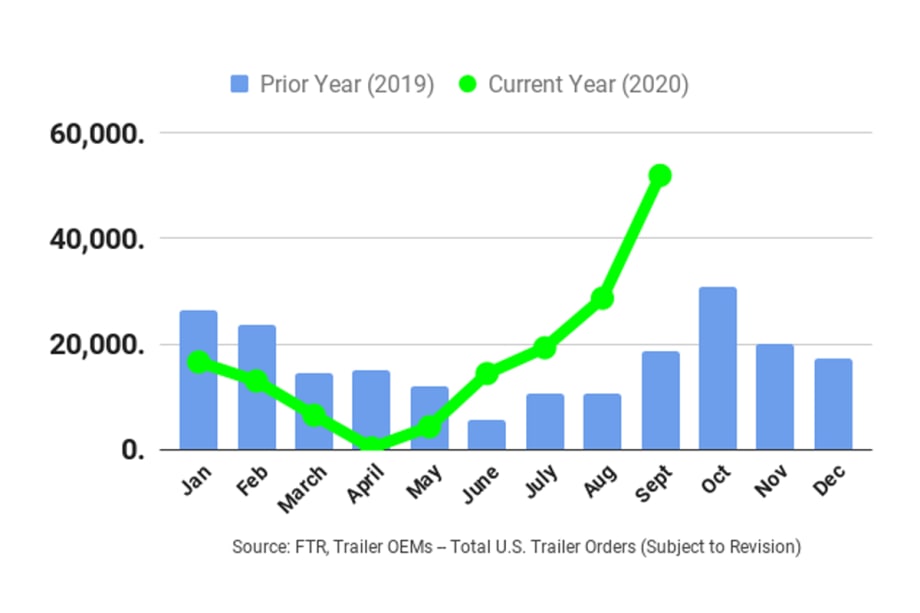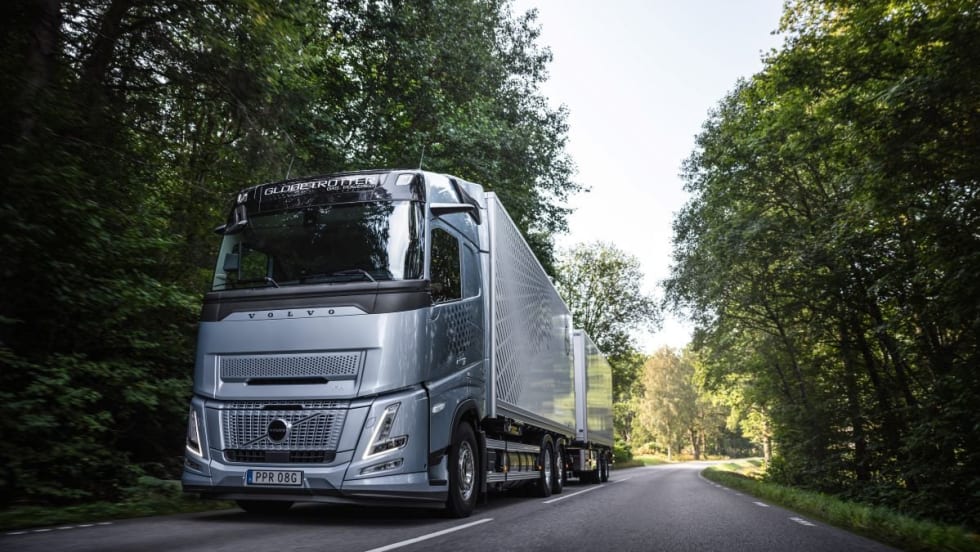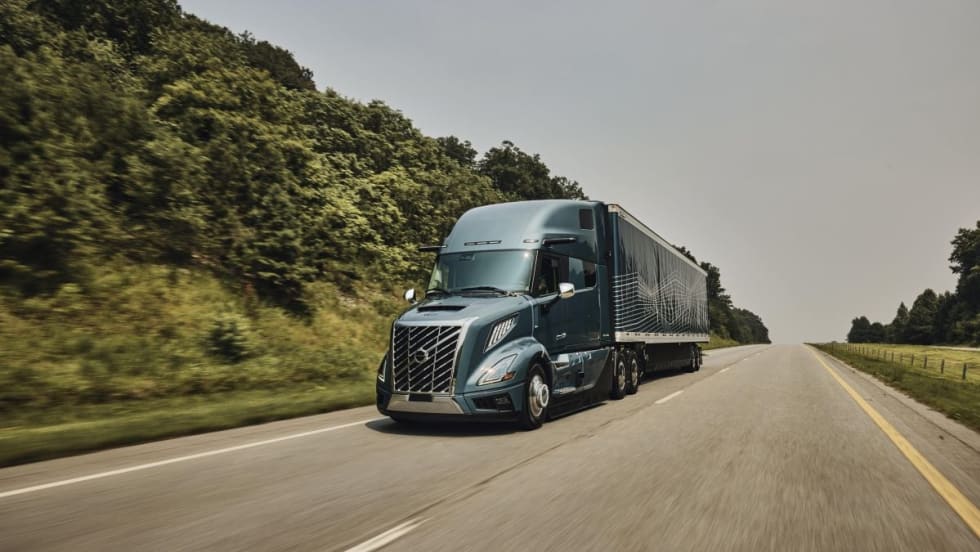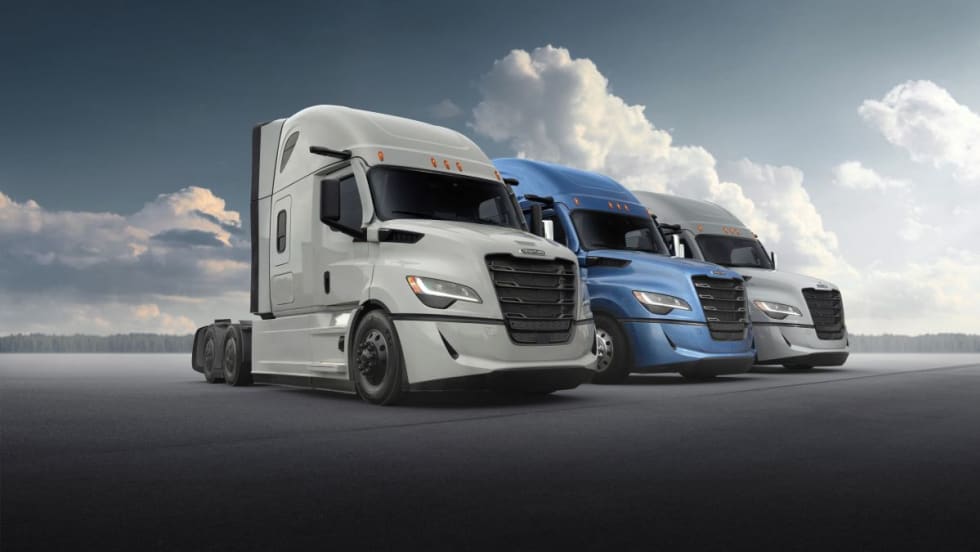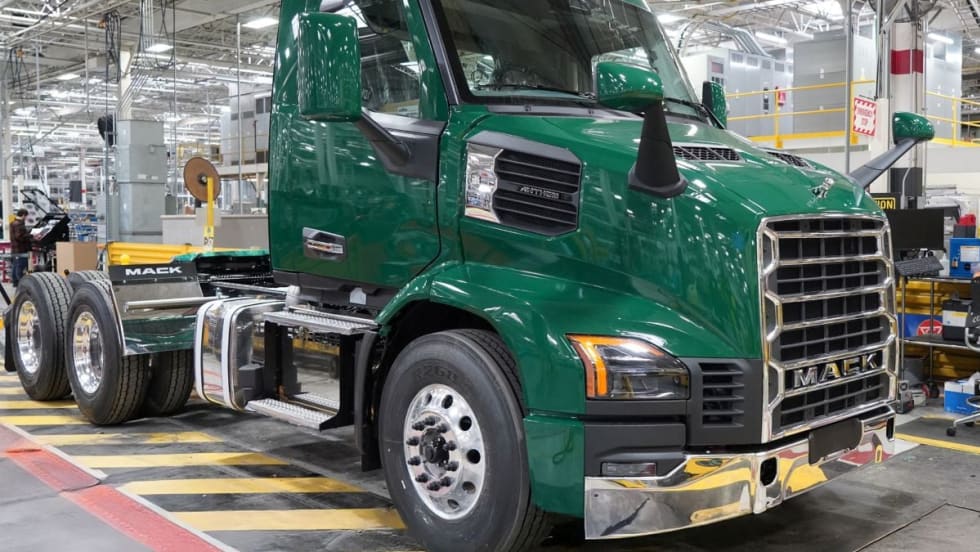According to preliminary reports from FTR, September’s U.S. net trailer orders hit a third-highest-month-ever record at 52,000 units, 23,500 units above August and 33,400 more than September 2019.
While the majority of the orders were for dry vans, refrigerated van orders were also high, with flatbeds expected to continue “their sluggish recovery,” according to FTR. Looking ahead, the company is predicting that backlogs will jump to December 2019 levels, with strong order totals from the last two months pushing production to pre-pandemic levels in Q4. More increases are also expected starting in the first quarter of 2021.
“There is expansion demand, replacement demand, dealer demand — just an enormous amount of demand for dry vans to keep consumer goods on the move,” said Don Ake, FTR vice president of commercial vehicles. “Fleets are expecting the hot freight market to continue into 2021 and want to be prepared with adequate capacity. Reefer demand should also continue to be strong, and benefit from more restaurant activity as 2021 progresses.”
With the Congressional stimulus package pumping money back into the economy, much of this cash has been spent in the consumer goods sector, boosting dry van freight, limiting capacity, and increasing freight rates. Consumers also have more disposable income to spend on food due to restaurants being closed, which has also increased reefer sales.
“This appears to be a repeat of late-2018 when fleets ordered trailers in record numbers in September and October because of tight capacity and perceived limited build slots at the OEMs,” added Ake. “There could be some irrational exuberance behind orders this high. Fleets are expecting the current conditions to continue well into 2021, and this may not be the case. The trailer market has seen incredibly wide swings in 2020 and it is difficult to determine how long the current momentum can last. Orders may stay elevated if fleets compete to lock up future build slots as they did in 2018-2019.”




